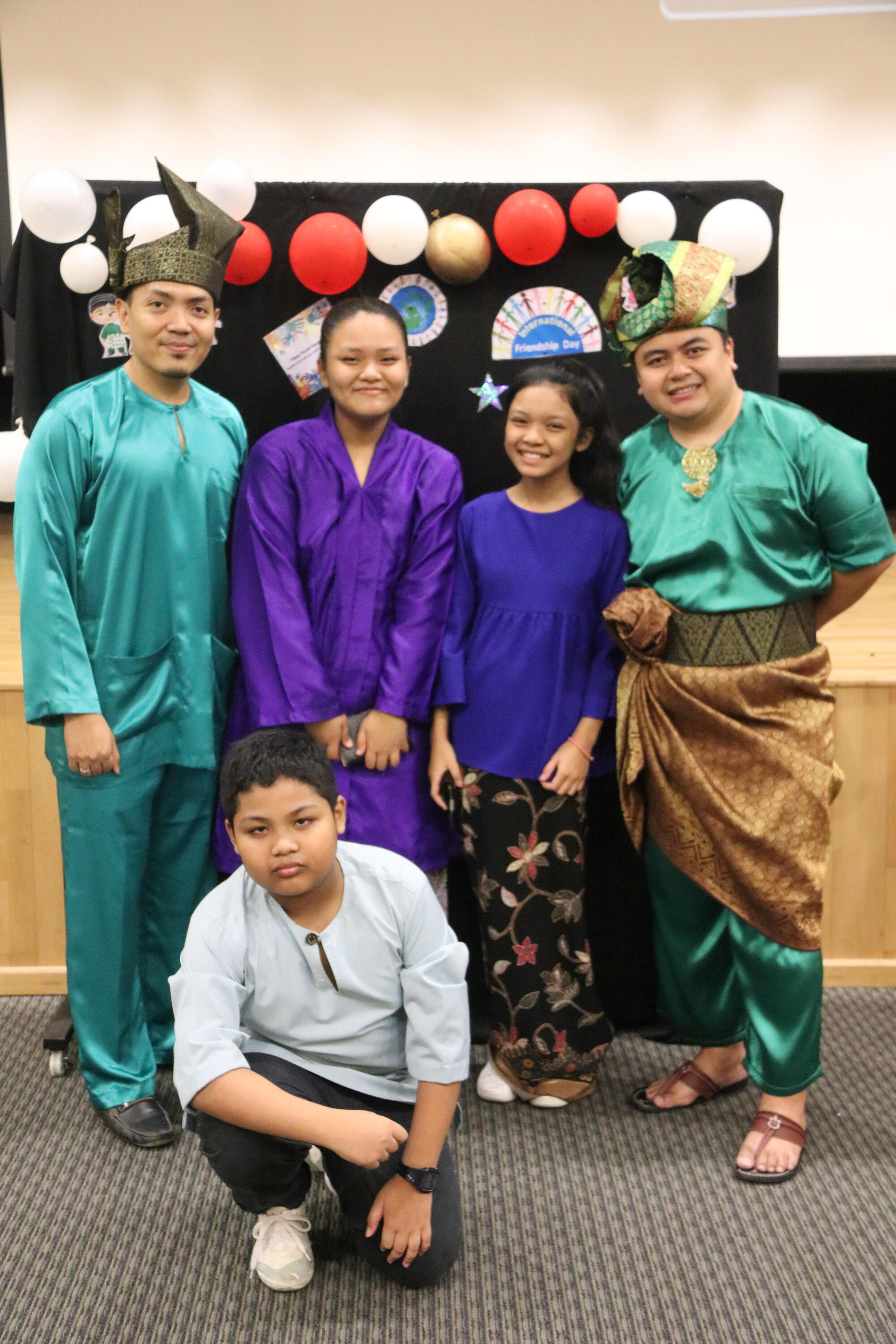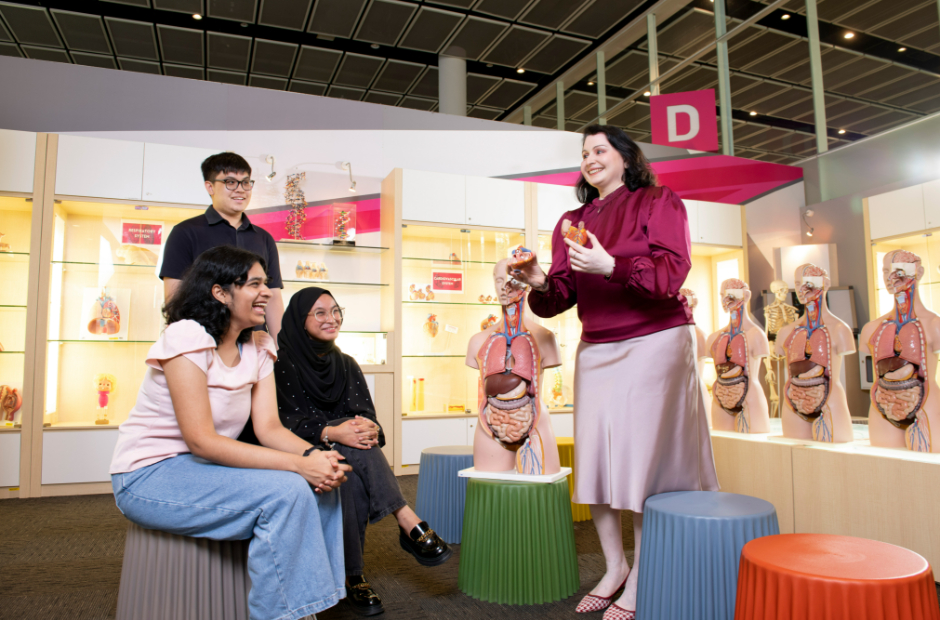Amirul Asri Bin Hussin, Evergreen Primary School, Outstanding Youth in Education Award 2020 finalist
The First Act
The curtains were closed.
The audience — anxious yet excited parents, teachers, and school leaders — were strolling in. Backstage, parent volunteers were helping with make-up. The stage manager and backstage crew, all teachers, were making last-minute preparations.
Soon, all 220 seats in the school hall were full. The lights were off, the sound was on, and the curtains opened. The show was on.
Welcome to a typical Evergreen Primary School drama production — which involves the whole village, including parents, teachers, and of course, students.
Our school’s drama productions were not always like this.
When I first joined the school in 2014, there was already a small-scale speech and drama programme in place for Primary 2 Malay Language students.
During the 10-week programme, students were assessed on their reading and speaking skills, at the end of which they performed for their friends from the Malay classes at their level. Parent involvement was minimal.
A New Scene Opens
I saw that our Primary 2 speech and drama programme had the potential to reach more students. Part of my motivation sprang from my own love for theatre, which I discovered when I was 17 years old, as a member of the Malay Language and Cultural Society in Millenia Institute. I enjoyed the experience of being on stage, which taught me to be confident.
But first, I had to get my colleagues on board.
In 2015, I invited a Master Teacher from the Malay Language Centre Singapore, Mr Muslim Hanafiah, to conduct a drama workshop for teachers. The effect could be felt at once as teachers began employing drama techniques during their own lessons. With their interest in drama seeded, my fellow teachers became stage managers and backstage crew for our school productions.
I wanted to involve parents as well. Reaching out to parents via a letter at the start of the programme, I explained how they could be involved — by practising script-reading with their child and watching videos of the story that would be performed to learn more about the character their child would be playing. They could also volunteer to help with the production, such as doing make-up, setting up the venue, or ushering.
Audience Participation
I found that students are more motivated to give their best on stage when their parents are there to support them. Little things like getting students to bring home posters of their production, promote it to their family, and ‘sell’ tickets (at no charge of course) add to the excitement.
As the students are young — seven- and eight-year olds — it is often their first taste of how theatre productions work. With their families’ support, their confidence levels soar. Upon seeing the impact of the expanded Malay Language speech and drama programme — our performances are ‘sold out’ — the school decided to adopt a whole-school approach.
Now we have the English Language ‘Multi-Modular Programme’, comprising reader’s theatre, character portrayal, hip-hop dance, drumming, as well as speech and drama. Every student from Primary 1 to Primary 6 is involved in putting up a performance in the multi-purpose hall, watched by students and parents.
I keep a lookout for external drama competitions to give my students more exposure. Whenever I spot good opportunities, I work with my school leaders and colleagues to organise an open call to students, conduct internal auditions, form teams, and send these teams for competitions.
My students were talent scouted by MediaCorp to be part of a new Malay drama series entitled ‘Kelab Prefect’, which is still showing every Friday night on Suria. The students were all very excited when the first episode aired.
One of them approached me and said, “Cikgu, I always look forward to every Friday because I can see myself on television and my friends comment on my acting on Monday. This motivates me to encourage my friends to use the Malay language beyond the classroom.”
Stage Magic
Once you start believing in yourself, magic starts happening. I see students helping each other with their lines and providing feedback to one another.
I once had a Primary Two boy in my class who had difficulty speaking and reading in Malay. He had grown up in Belgium and came to Singapore in Primary 1, with very little exposure to the Malay language. He was unmotivated as he found it difficult to understand the language.
I gave him the choice to sit with his friends during classes. His friends were happy to help him along in learning to read the script.
At the end of the lesson, we would all sit in a circle to reflect and discuss what they had learnt that day. It was always more than just new words or phrases. I would always remind them to share about the values they practised and observed too, such as being kind and helpful.
The 10 weeks in the programme changed this student. During the school production, his parents were in tears (of joy!) watching their son speak the Malay language confidently on stage in front of a large audience. I almost teared too, as I could feel their sense of pride.
He once approached me and said, “Terima kasih, Cikgu. Saya yakin menggunakan Bahasa Melayu sekarang kerana drama.” (“Thank you, teacher. I am confident in using the Malay language now because of drama.”)
From Backstage to Centrestage
I believe in practising what I preach. I am a teacher, but I take part in drama productions for the public.
I invite my students to my productions so they can see for themselves the relevance of the Malay language beyond the classroom. After the performances, we discuss the storyline and the values that they learn from the story in class.
Drama is more than just learning lines and putting on a show. It brings the language to life and makes learning fun and engaging.
I hope to continue promoting this vision of mine to help students communicate and express themselves freely, whether through facial expressions, body language or enunciation, and to be confident in doing so. This is a skill not just for the stage, but for life itself.




.jpg)

